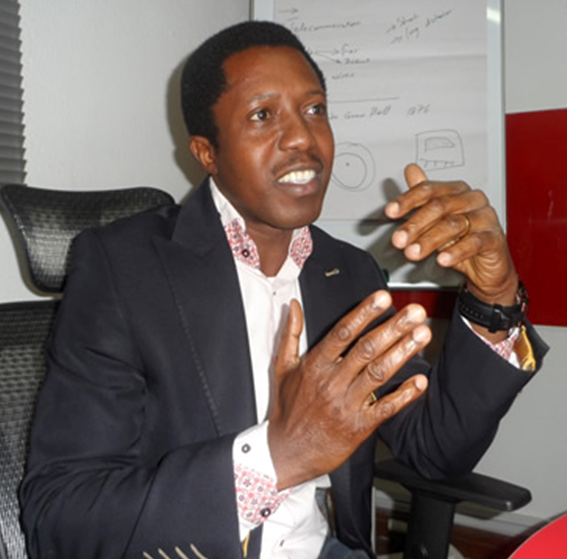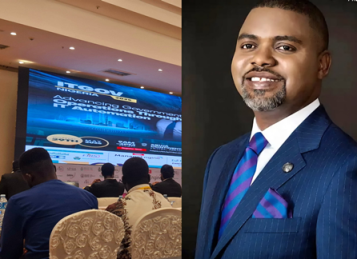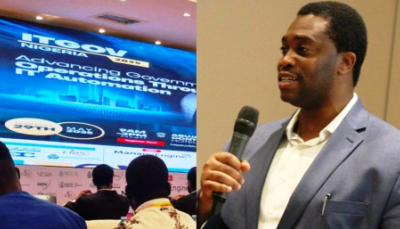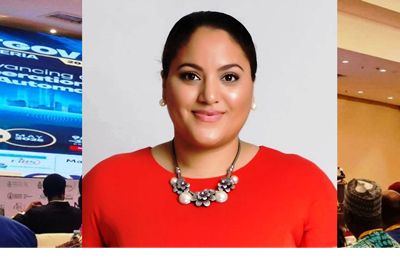Managing Director of VAS2Nets, Mr. Ayo Stuffman talks to IT Edge News, Anthony Nwosu, about the new retina eye security for financial transaction and also how the mobile VAS space is burdened by revenue parity.
Tell us about VAS2Nets and the VAS industry in Nigeria?
We create and develop applications for different sectors such as agriculture and healthcare. We also develop some applications for network operators such as MTN, etc. People can also have access to our applications either from android store and Microsoft store that will be before the end of the year. Mind you, most of these apps are free not that we do not have premium application but the majority of these applications are free and can be downloaded from various play stores or market. We still have financial inclusion apps that will be used by financial networks. We developed an “eye network” application that can authenticate the financial transfer via eye network – this is the height of security and it is different from eye retina. This is very good for financial transfer instead of using token for these transfers you can use the eye network.
What are the levels of adoption and advantages of this eye network application?
This technology was announced two years ago in Barcelona and some banks are using it in the United States and Australia and we are running a pilot test with a bank. This is a technology that is being welcomed everywhere. You cannot hack this technology. We have partners we are working with and it is patented as well. This will give people peace of mind. There are no issues of forgetting your password; this technology can be deployed in ATM and other high security areas. Unlike the bare biometric that can be hacked easily, this eye connect is the best type of technology and it is here to stay. This technology works with a mobile device that have a camera phone that have a specification of 1.5 mega pixel camera and it can also be incorporated in ATM stations.
Apart from financial institutions do you work with online firms?
Yes, we are working with Nigeria Inter Bank Settlement Scheme (NIBSS), this is to make sure we carry it to a logical conclusion. We have spoken to Master Card South Africa. We have plans to talk to Visa, Paypal and Visa card but for now we are working with NIBSS in Nigeria.
Has the revenue sharing between VAS firms and network operators improved?
The Nigerian Communications Commission (NCC) made it clear to us that they won’t get involved in our commercial dealing with operators. When it comes to value added services we leverage on the mobile operators’ existing platforms, this is expensive for them but we bring in our experience in terms of content aggregation and we need to promote this content. For us to get this content to subscribers it must pass through telecommunication operators. We prefer that operators feel our pain too. We know how much it costs to get this to subscribers. I believe that it will be fair if all stakeholders can sit and see how we can come to a table and discuss how this revenue will be shared. It doesn’t make logical sense to say that 15% goes to VAS and so amount goes to operators or NCC. The NCC, operators, and VAS firms must have a meeting where an acceptable revenue sharing formula can be arrived at. We need to have a good return on our investment. When we pay content owners, pay withholding tax and the professionals how much is left in the 15% of the revenue. I believe that there should be a room for negotiation. The government needs to intervene.
How do you see a situation where mobile operators are also playing actively in the space for value added services?
To me personally, I do not think that it is wise or the right thing to do. We should have a level playing field based on the license given to operators and there should be adherence to roles. As a VAS provider, I will want to work with the operator of my choice. In this part of the world, things are not done the way they should be done. Network operators do not have the right to go into content aggregations. This is work for the NCC and they have to come in and bring sanity into the business. It will be fair for everyone to keep to their line of business.
As a stakeholder what are the advice you have for regulatory authority in Nigeria as to the best way to handle the VAS industry?
The way VAS services are regulated in Europe is very different and they have a unique regulatory body, unlike here in Nigeria that VAS is lumped together with NCC. The role that I will advise government to play is to come up with a regulatory framework that will protect the local content providers and aggregators. This will go a long way to boost the morale of VAS providers and the data should be competitive. The cost of broadband should be brought down, if this comes down, then VAS providers will leverage on the cloud. This will reduce the CAPEX. The only way that VAS can be profitable in Nigeria is to have a hub that will interface between the VAS operators and the networks. This will bring a lot of sanity and the issue of withholding tax should be reviewed. We are not distributors, we are into services. The NCC should come up with a strategy that ensures transparency in the telecommunication/VAS space. The bureaucracy must be reduced and this is hampering the deployment of mobile content to subscribers. There must be a timeline for deployment or launching of solutions by VAS firms.
“Network operators do not have the right to go into content aggregations. This is work for the NCC and they have to come in and bring sanity into the business. It will be fair for everyone to keep to their line of business.”
“When we pay content owners, pay withholding tax and the professionals how much is left in the 15% of the revenue. I believe that there should be a room for negotiation. The government needs to intervene.”






























